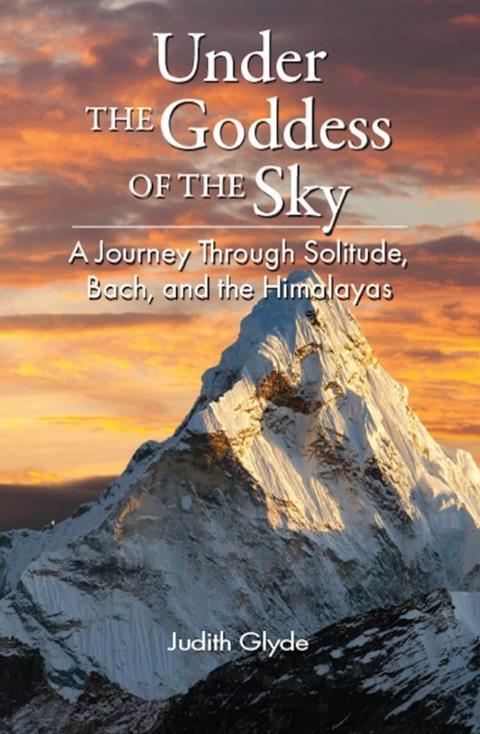Raphael Klayman takes a look through Judith Glyde’s account of learning Bach’s Cello Suites in the Asian mountain range

Under the Goddess of the Sky: A Journey through Solitude, Bach, and the Himalayas
Judith Glyde
200PP ISBN 9781684921768
Epicenter Press $16.95
Musicians often like to make special projects for themselves – recitals, recordings, composing, arranging and so on. Some projects are of a more personal nature, such as thoroughly learning a piece or set of pieces mostly for one’s own satisfaction and sense of accomplishment.
It could be argued that for a cellist, deeply learning and even memorising all six of the Bach Solo Cello Suites would more than qualify as such a project. Indeed, the six Bach Suites may well be considered as the Himalayas of the cello repertoire. Distinguished cellist Judith Glyde set herself this task and gave herself three months to achieve it. Not content, however, to take on these metaphorical Himalayas in the comfort of her home, she decided to do so in the literal Himalayas.
As a founder member of the Manhattan Quartet, Glyde was a seasoned world traveller but sought the greater isolation of the Khumbu region of the Himalayas to devote herself to mastering the Bach Suites back in 1999. She made arrangements to stay with a Sherpa family and planned her trip.
Throughout the book, Glyde is honest about the many fears, misgivings and challenges she faced, ranging from one of the world’s most dangerous airports to casual warnings against hiking at a particular time and area because a tiger had been spotted lurking. And as far as desiring isolation goes, it’s wise to be careful what you wish for. Glyde faces all of this with courage and determination and at one point is particularly refreshed and inspired by a special trip to the foothills of that other legendary challenge, Mount Everest.
As a professional string player myself, I could relate to Glyde’s account of practising and her sense of accomplishment. And as one who has done a bit of international travel, I followed her trek with interest. Yet the overall feeling I was left with from the account of this particular adventure was one of bleakness.
The book is very readable and includes a limited Sherpa lexicon and a few recipes at the end.
RAPHAEL KLAYMAN











































No comments yet